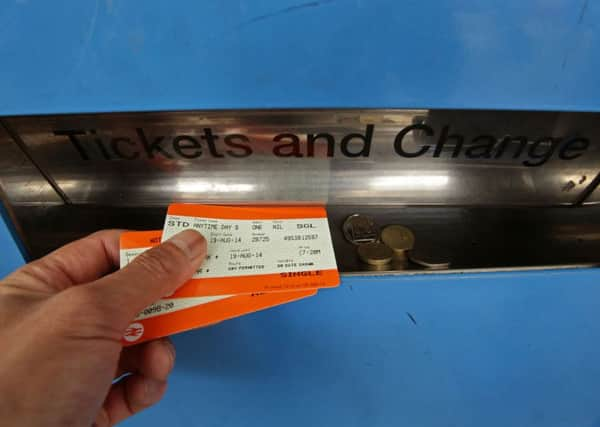Rail fares to increase by one per cent


The news follows the release of inflation figures, which are used to calculate fare rises from January 2016.
The Consumer Price Index (CPI) increased by 0.1 per cent, while the Retail Price Index (RPI) remained unchanged from June, staying at 1 per cent.
Advertisement
Hide AdAdvertisement
Hide AdToday, a new report from Action for Rail campaign group says that over the past five years rail fares have risen almost three times faster than wages.
The Department of Transport has said that during this parliament, regulated rail fares in England will increase by no more than the RPI inflation.
The cap will cost taxpayers around £700 million over the next five years, but bigger savings could be passed on to passengers if train services were run by the public sector, said the report.
Season tickets could be 10% cheaper by 2017 if routes coming up for tender were given to public sector organisations, it was claimed.
Advertisement
Hide AdAdvertisement
Hide AdTUC general secretary Frances O’Grady said: “Rail fares have rocketed over the last five years leaving many commuters seriously out of pocket.
“If ministers really want to help hard-pressed commuters they need to return services to the public sector. This is a fair, more sustainable option and it would allow much bigger savings to be passed on to passengers. Introducing an arbitrary cap on fares is simply passing the bill on to taxpayers.
“The Government wants the public to subsidise train companies’ profits and bear the cost of the fares cap.”
Aslef general secretary Mick Whelan said: “Once more, those who claim they want to make work pay devalue that statement with continual, excessive and unreasonable increases in fares.”
Advertisement
Hide AdAdvertisement
Hide AdRail minister Claire Perry said: “We know rail fares put a strain on family finances. That’s why today, for fares we can control, we are putting an end to inflation-busting fare increases.
“Thanks to our plans, next year’s fares will see some of the lowest increases for decades. And with the economy growing steadily, for the first time in ten years wage rises are likely to be larger than average fare increases.
“At the same time we are delivering the largest programme of investment since the Victorian era so that customers get better value for money.”